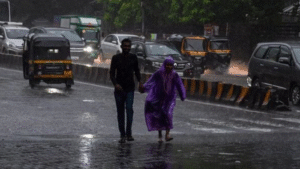Accidents While Commuting to Office Will Be Counted as ‘On Duty’ — Big Decision by Supreme Court

Accidents While Commuting to Office Will Be Counted as 'On Duty' — Big Decision by Supreme Court
In a landmark ruling, the Supreme Court states that employees injured or killed while travelling to or from work will be considered “on duty” if a clear link exists with employment
The Supreme Court has delivered a significant judgment for India’s workforce, ruling that an employee who meets with an accident while commuting to or from the workplace will be considered “on duty” under the Employees’ Compensation Act, 1923. The clarification came in response to long-standing ambiguity over the interpretation of the phrase “accident arising out of and in the course of his employment” under Section 3 of the Act.
The apex court stated that any accident occurring while an employee is travelling between their home and their workplace will fall within the purview of the Act—provided there is a clear causal connection between the time, place, and circumstances of the accident and the employment itself.
The bench noted that such scenarios have often been fraught with “considerable doubt and ambiguity,” and its interpretation now brings clarity and expanded protection for employees across the country.
The ruling was made while hearing a petition challenging a December 2011 order by the Bombay High Court, which had overturned compensation previously awarded to the family of a deceased worker. The case involved a watchman employed at a sugar factory who died in a road accident while commuting to his early morning shift on April 22, 2003. His duty hours were from 3 a.m. to 11 a.m., and he died roughly five kilometres from the workplace.
The original order by the Labour Compensation Commissioner and Civil Judge, Osmanabad, had granted the deceased’s family compensation of ₹3,26,140 plus interest. This was later quashed by the Bombay High Court, prompting the appeal to the Supreme Court.
By reversing the High Court’s ruling, the Supreme Court reaffirmed the importance of interpreting labour welfare legislation liberally, keeping in mind the intent to safeguard the rights and dignity of workers. Legal experts say this landmark judgment could set a strong precedent for future compensation claims involving commuting accidents, especially for employees in remote or shift-based roles.












